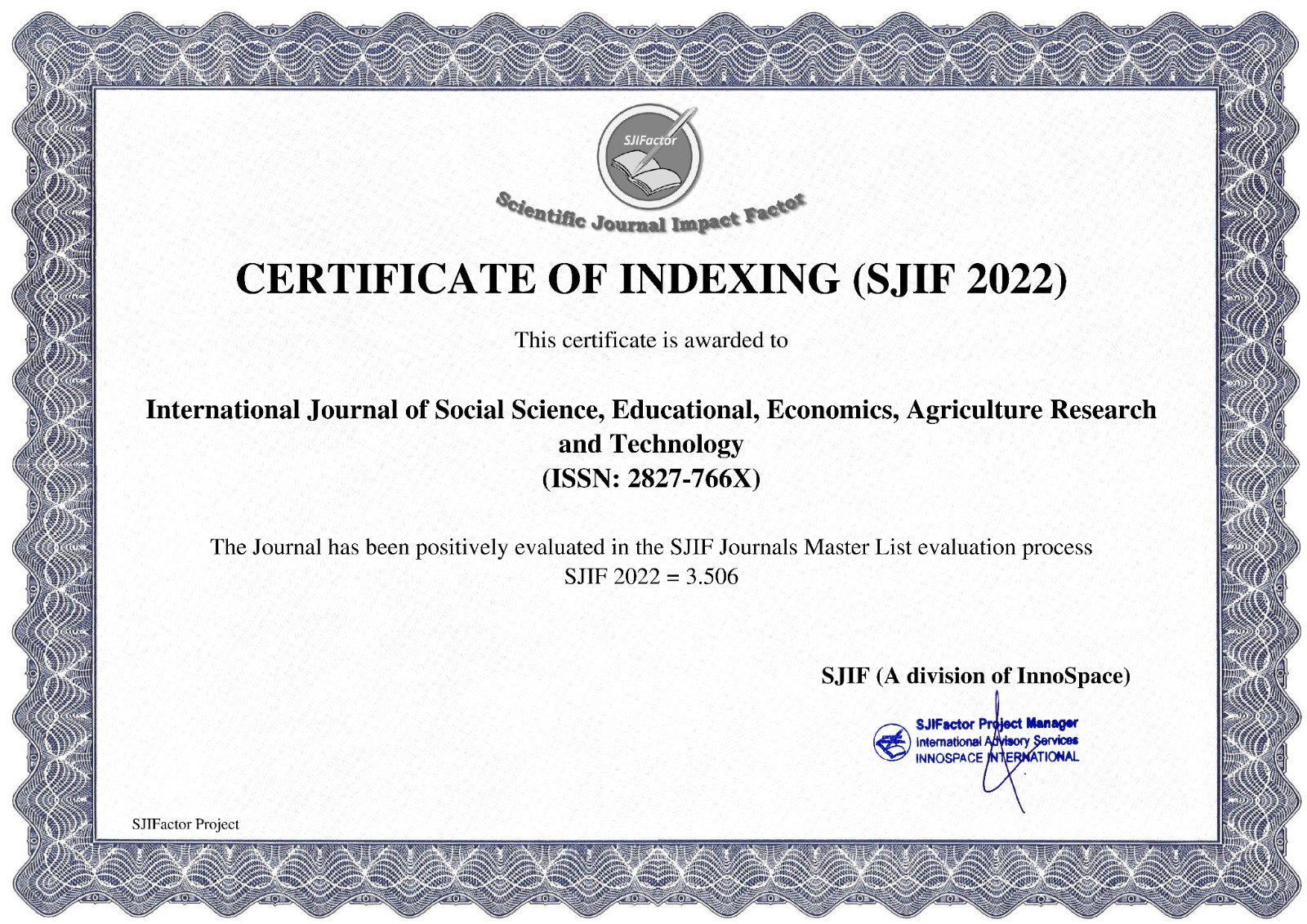COMPARISON OF INDONESIAN AND MALAYSIAN STUDENT ENTREPRENEURSHIP STUDIES: A MANAGEMENT AND ACCOUNTING PERSPECTIVE
Main Article Content
Vivi Oxana Putri
Marsaulina Sirait
Della Aureliya
Hafizah Khaira Nasution
Ginta Puspita
Etriyani Karolina Br Sembiring
Miftahul Jannah
Eliza Rusliana Br Harahap
Anisa
Annisa Sanny
Ayu Kurnia Sari
Noni Ardi
This study aims to compare the implementation of entrepreneurship education at Universitas Pembangunan Panca Budi (UNPAB) Medan, Indonesia, and Universiti Putra Malaysia (UPM) from management and accounting perspectives. The research is based on the importance of entrepreneurship education in preparing graduates with adaptive business skills in the Southeast Asian digital economy era. Theoretical review refers to the concepts of Strategic Management Accounting (SMA) and Management Control Systems (MCS) which support decision-making based on data and business performance indicators. This study used a qualitative method with a case study approach at both universities, involving observation, in-depth interviews, and documentation of student entrepreneurship programs. The findings show that practical-based entrepreneurship education at both institutions significantly improves students’ managerial, accounting, and business skills. Students involved in business incubators, campus bazaars, and small business operations can prepare simple financial reports, analyze operational costs, and determine business strategies based on financial and non-financial data. In conclusion, the entrepreneurship education models developed by UNPAB and UPM effectively shape competent young entrepreneurs, and it is recommended that similar programs be implemented more widely in higher education institutions within the region.
REFERENCES
Oriza W, Ganefri, Giatman M, Yulastri A, Maksum H. Komparasi Pendidikan Kewirausahaan Di Indonesia Dan China Melalui Kewirausahaan Teknologi Informasi Digital. Indones J Comput Sci. 2024;12(6):4255–67.
Amalia RT, von Korflesch HFO. Entrepreneurship education in Indonesian higher education: mapping literature from the Country’s perspective [Internet]. Vol. 4, Entrepreneurship Education. Springer Singapore; 2021. 291–333 p. Available from: https://doi.org/10.1007/s41959-021-00053-9
Universitas Muhammadiyah Yogyakarta. Indonesia dan Malaysia Negara Dengan Jumlah UMKM Tinggi [Internet]. LLDikti V. 2023. p. 4–5. Available from: https://lldikti5.kemdikbud.go.id/home/detailpost/indonesia-dan-malaysia-negara-dengan-jumlah-umkm-tinggi
Priambodo A. The Impact of Student Entreprenurship Development Program on Student Entreprenurial Interest. J Ekon Bisnis Entrep. 2024;18(2):775–97.
Hastuti I, Utami IW. Business Training Development Model Through the Based Learning Project in Students. Int J Econ Bus Account Res. 2020;4(02).
Pratiwi N, Ahman E, Disman. Efektivitas Model Project Based Learning (PjBL) dalam Pembelajaran Ekonomi SMA pada Kurikulum Merdeka. J Neraca J Pendidik dan Ilmu Ekon Akunt. 2023;7(2):143–54.
Hanafiah, Arinindyah O, Nurhayati W, Nurhidayah, Zawirrahmi. Outcome-Based Education sebagai Pendekatan Transformasi dalam Pengajaran Kewirausahaan: Studi Kasus di Perguruan Tinggi. J Educ. 2024;10(4):1382–90.
Inanna, Hakim, Idris W, Hakim IF, Nurjannah, Ratna. Kewirausahaan Berbasis Project Based Learning (Implementasi Kurikulum Merdeka) [Internet]. Rahmatullah, editor. Penerbit Tahta Media. Sukoharjo: Tahta Media Group; 2023. Available from: http://tahtamedia.co.id/index.php/issj/article/view/292%0Ahttp://tahtamedia.co.id/index.php/issj/article/download/292/292
Yunus M. Islam dan Kewirausahaan Inovatif. UIN Malang Press. Mlaang: UIN Malang Press; 2008.
Manap A. Manajemen Kewirausahaan Era Digital [Internet]. Mitra Wacana Media. 2021. 1–355 p. Available from: http://repo.jayabaya.ac.id/
Kasmir. Kewirausahaan. Raja Grafindo Persada. PT Raja Grafindo Persada; 2015.
Octavia J. Pengaruh Sikap Kewirausahaan Dan Kompetensi Wirausaha Terhadap Keberhasilan Usaha Pada Produsen Sepatu Cibaduyut Kota Bandung. J Ilm Magister Manag. 2020;5(1):1–7.
Curado C, Jesus M, Bontis N. SMEs Managers’ Perceptions of MCS: A Mixed Methods Approach. J Small Bus Strateg. 2022;32(4):30–47.
Ma L, Chen X, Zhou J, Aldieri L. Strategic Management Accounting in Small and Medium-Sized Enterprises in Emerging Countries and Markets: A Case Study from China. Economies. 2022;10(4).
Masrunik E, Prasetyo W, Wahyudi A, Indarriyanti H, Septiawan B. Akuntansi Kewirausahaan. Purbalingga: CV. Eureka Media Aksara; 2022. 1–23 p.
Mustapha I, Sakariyau OB, Zubairu UM, Jimoh M. Entrepreneurial Accounting as a Driver of SMEs’ Sustainability: A Systematic Review. Vol. 7, Journal of Business and Behavioural Entrepreneurship. 2023. 1–22 p.
Najera Ruiz T, Collazzo P. Determinants of the use of accounting systems in microenterprises: evidence from Chile. J Account Emerg Econ. 2021;11(4):632–50.
Sulasari A. Pengembangan Metode Pembelajaran Kewirausahaan Berbasis Proyek Untuk Meningkatkan Karakter Wirausaha Mahasiswa di Politeknik Negeri Malang. Etika Jurnalisme Pada Koran Kuning Sebuah Stud Mengenai Koran Lampu Hijau. 2020;16(2):39–55.
Sugiyono. Metode Penelitian Kuantitatif Kualitatif dan R&D. Bandung: Alfabeta; 2022. 152 p.
Creswell JW, Creswell JD. Research Design. Writing Center Talk over Time. United Kingdom: SAGE Publication Inc.; 2018. 37–60 p.
Budi UPP. Sosialisasi Dosen Wirausaha Oleh Rektor UNPAB [Internet]. UKM Center Panca Budi. 2020. p. 1–4. Available from: https://ukmcenter.pancabudi.ac.id/news/read/sosialisasi-dosen-wirausaha-oleh-rektor-unpab
Graduan PPK dan K. Mengenai kami [Internet]. CEM UPM. 2025. p. 11–3. Available from: https://cem.upm.edu.my/mengenai_kami-1286






















